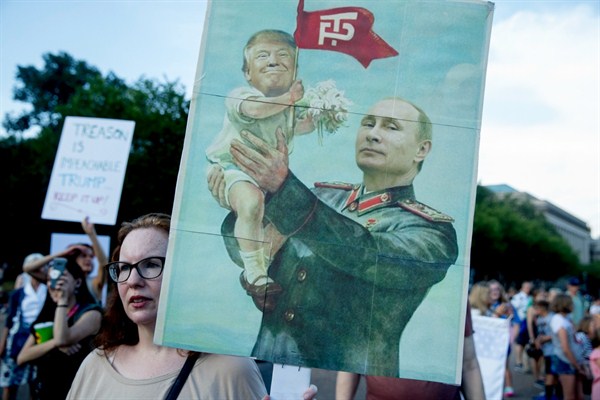Everyone other than President Donald Trump’s most ardent loyalists considered his performance at—and after—this week’s summit with Russian President Vladimir Putin a disaster. Standing beside one of America’s most skilled adversaries, Trump blasted his own domestic political opponents, while again adopting the language of dictators by calling the nonpartisan media “an enemy of the people.” He once again accepted Putin’s denial of Russian meddling in America’s 2016 election despite the U.S. intelligence community’s conviction that it happened. Instead of highlighting the deep policy differences between the United States and Russia, Trump adopted the Russian positions on what caused the deterioration of bilateral relations. And in stark contrast to the way he treated America’s close NATO allies a few days earlier, he lavished praise on Putin.
Criticism was immediate and vociferous. CNN’s John King called the Helsinki meeting Trump’s “surrender summit.” Columnist Max Boot described it as the “sellout in Helsinki.” Sen. John McCain decried the post-summit press conference as “the most disgraceful performance by an American president in memory.” Former CIA Director John Brennan tweeted, “It was nothing short of treasonous.”
One headline in particular stands out: a story by the New Yorker’s Robin Wright that referred to Helsinki as “Trump’s appeasement summit.” The use of the word “appeasement” is important. Often applied to then-British Prime Minister Neville Chamberlin’s approach to the rise of Adolf Hitler and Nazi Germany in the late 1930s, it is highly pejorative, suggesting a futile and misguided surrender to the demands of an aggressor. Calling a policy “appeasement” is intended to sting.

